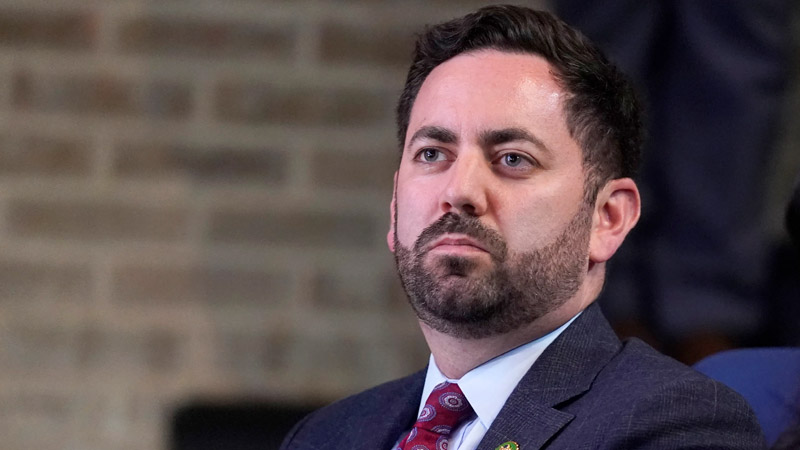Court Hearing Stirs Debate Over Trump’s Potential Disqualification from Ballot

(Sue Ogrocki/The Associated Press)
In a pivotal legal challenge presented to the Minnesota Supreme Court on Thursday, attorney Ron Fein argued against former President Donald Trump’s qualification to be listed on the presidential ballot, as reported by Raw Story.
Central to Fein’s argument was the assertion that Trump should be considered ineligible to run for president unless he is granted amnesty by Congress for his alleged role in the January 6 insurrection. The state’s highest court scrutinized the legal nuances of Trump’s possible run during the session.
Fein firmly maintained that Trump’s involvement in the events of January 6 should bar him from appearing on Minnesota’s ballot for the presidency, citing the 14th Amendment which bars insurrectionists from holding office unless pardoned by Congress.
Fein recognized the slim chance of Congress providing such amnesty to Trump, which would require a two-thirds majority in both the Senate and the House of Representatives. He underscored the speculative nature of this outcome by stating, “It is extremely speculative that Trump would receive amnesty from two-thirds of both houses of Congress.”
He also pointed out that Trump has not yet sought amnesty, and emphasized the court’s tradition of not engaging with purely hypothetical scenarios, quoting the court’s own words, “This court has said that it does not decide questions that are purely hypothetical.”
Fein wrapped up his argument with a clear stipulation: “He’s disqualified unless and until two-thirds of Congress, both Houses grant him amnesty.”
The legal proceedings against Trump’s ballot eligibility echo the national discourse regarding his role in the January 6 events, which has been a watershed moment for the nation, spurring debate on responsibility and the repercussions for those implicated.


